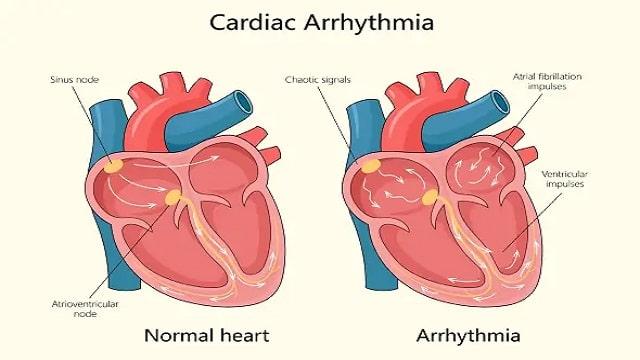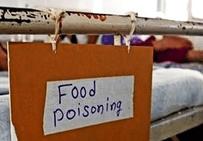
Anorexia Nervosa Symptoms, Risk Factors & Treatment | Diseases List A-Z
Anorexia nervosa is a mental illness that makes sufferers obsessed with having a thin body because they are very afraid of having a fat body or looking fat.
Even though they are thin, sufferers always think that their body is not thin enough or fat enough.
Aside from anorexia nervosa, there is also another eating disorder that is quite dangerous, namely bulimia.
Although both are included in eating disorders, these two mental problems have differences.
The difference between anorexia nervosa and bulimia nervosa is seen from the weight and behavior that appears.
Bulimia mental disorder generally has a normal weight because sufferers have an obsession with overeating, then vomiting the food.
Meanwhile, anorexia sufferers generally have less than normal body weight and have an obsession to be thin.
Anorexia can be very dangerous because it causes malnutrition in the body of the sufferer.
Symptoms of Anorexia Nervosa The signs and symptoms of anorexia nervosa are related to signs of starvation.
Anorexia also includes emotional and behavioral problems involving unrealistic perceptions of body weight and an intense fear of gaining weight or becoming fat.
Signs and symptoms can be difficult to spot because what is considered underweight varies from person to person.
Also, some people may not appear very thin.
People with anorexia nervosa also often disguise their thinness, eating habits, or physical problems.
Physical symptoms Physical signs and symptoms of anorexia may include: Extreme weight loss or no weight gain according to development.
Thin appearance.
Abnormal number of blood elements.
Dizziness or fainting.
Bluish discoloration of the fingers.
Hair that is thinning, breaking or falling out.
Fine, downy hair covers the body.
Not having menstruation.
Constipation and stomach ache.
Dry or yellowish skin.
Cold intolerance.
Irregular heart rhythm.
Low blood pressure.
Swelling of the arms or legs.
Teeth are worn down and calluses on the knuckles from vomiting.
Binge and purge type of anorexia, similar to bulimia.
However, anorexics generally struggle with an abnormally low body weight, whereas bulimics are usually overweight.
Emotional and behavioral symptoms Behavioral symptoms of anorexia may include attempts to lose weight by: Severely restricting food intake through diet or fasting.
Over-exercising.
Overeating and self-induced vomiting to eliminate food, possibly including the use of laxatives, enemas, diet aids, or herbal products.
Meanwhile, emotional and behavioral signs and symptoms of anorexia nervosa include: Preoccupation with food, which sometimes includes cooking elaborate meals for others but not eating them himself.
Often skip meals or refuse to eat.
Denying hunger or making excuses for not eating.
Eat only certain foods, usually those that are low in fat and calories.
Doesn’t want to eat when there are a lot of people.
Lying about how much food is consumed.
Fear of gaining weight which may include repeatedly weighing or measuring the body.
Frequently check the mirror for flaws.
Complaining about being fat or having fat body parts.
Covering layers of clothing.
The mood of the day is flat or lacking emotion.
Social withdrawal.
Lack of interest in intimate relationships.
In fact, the way the brain works for people with eating disorders is actually not the same as normal people.
Causes of Anorexia Nervosa Unfortunately, experts do not yet know for sure what causes anorexia nervosa.
As with many diseases, there may be a combination of biological, psychological, and environmental factors.
Biological Although it is not clear which genes are involved, there may be genetic changes that put some people at higher risk of developing anorexia.
Additionally, a person may also have a genetic predisposition to perfectionism, sensitivity, perseverance, and all the traits associated with anorexia.
Psychological Some people with anorexia nervosa have obsessive-compulsive personality traits that make it easier to stick to a strict diet and forget about food even when hungry.
They may have extreme perfectionism, leading to thoughts that they are never thin enough.
In addition, they also have high levels of anxiety and engage in restricted eating to reduce it.
Environment There is a lot of modern popular culture that emphasizes that the ideal body is a slim body.
Success and fame are often equated with the ideal thin body.
Peer pressure can also help fuel the desire to be thin, especially among young girls.
Risk Factors for Anorexia Nervosa Anorexia is more common in girls and women.
However, today’s boys and men are also developing eating disorders, which may be related to increased social pressure.
Anorexia is also more common in teenagers.
However, people of any age can develop this eating disorder.
Additionally, the disorder is rare in those over the age of 40.
Teenagers may be at greater risk because of all the changes that occur in their bodies during puberty.
Additionally, teens may also face peer pressure and be more sensitive to criticism or even casual comments about their weight or body shape.
Meanwhile, there are several factors that can increase the risk of anorexia, namely: Certain gene changes may put certain people at higher risk of developing anorexia.
Those who have a first-degree relative, such as a parent, sibling, or child who has the disorder have a much higher risk of anorexia.
Poor diet and starvation Dieting is the single most important risk factor for eating disorders.
There is strong evidence that the symptoms of anorexia nervosa are actually symptoms of starvation.
Starvation affects the brain and causes mood swings, rigidity in thinking, anxiety, and decreased appetite.
Starvation and weight loss can change the way the brain works in at-risk individuals.
This can then normalize the formation of restrictive eating behaviors and make it difficult for them to return to normal eating habits.
Transition Whether it’s a new school, home or job, a breakup, or the death or illness of a loved one, any of these changes can bring emotional stress and increase the risk of anorexia.
In addition, parents also need to be aware of the parenting patterns they apply because Mistakes in Parenting Children Cause Anorexia Nervosa.
Diagnosis of Anorexia Nervosa Doctors can make a diagnosis through interviews, physical examinations, and various supporting examinations.
A doctor will diagnose anorexia if they find the following characteristics: Sufferers restrict food intake to maintain or gain less than normal body weight without paying attention to the calories and energy the body needs.
Have a great fear of gaining weight or being fat.
This fear will eventually make the sufferer do activities that can reduce the body weight that is already less than normal.
Having problems seeing yourself, such as constantly looking at your weight and body shape and denying that your weight is far below normal.
Then, the doctor will perform several physical examinations, including: Measure weight and height.
Check the condition of nails and skin.
Perform examinations on the stomach, heart and lungs.
Measuring vital signs, such as body temperature, heart rate, and blood pressure.
In order to get a more accurate diagnosis, the doctor may recommend several supporting examinations.
The goal is to rule out other potential problems causing weight loss or potential complications.
These tests include: Laboratory tests, including a complete blood count, urinalysis, and measuring protein and electrolyte levels in the blood.
Other tests include kidney, thyroid, and liver function.
Conducting a mental health evaluation, in the form of an interview to find out how the sufferer feels, their eating habits, and their thought patterns.
X-rays to determine bone health and density, as well as the potential for lung infections or heart problems.
Anorexia Nervosa Treatment Here are some steps for treating anorexia nervosa that you can take: Consultation with medical and psychological professionals An important first step is to seek help from a medical and psychological team experienced in treating eating disorders.
A doctor, psychiatrist, or psychologist can help diagnose and plan appropriate treatment.
Nutrition and weight recovery In cases of anorexia nervosa, weight restoration is a priority to restore healthy body function.
Consult a dietitian to plan a balanced diet.
Cognitive behavioral therapy Cognitive behavioral therapy (CBT) is one form of therapy that is effective in treating anorexia nervosa.
This therapy helps sufferers identify negative thought patterns and behaviors related to eating and weight.
The therapist will also help them replace these thought patterns with healthier and more realistic ones.
Family therapy This type of therapy is generally intended for teenagers who suffer from anorexia nervosa.
Involving the family in care can help build support and understanding of the family’s role in recovery.
Group support Joining a support group for eating disorders can help individuals feel more accepted and gain support from people who are going through similar things.
Overcoming emotional problems Therapy also helps individuals deal with emotional issues that trigger the condition, such as anxiety, depression, or stress.
Doctors usually prescribe medications such as antidepressants, antipsychotics, and mood stabilizers.
Avoid comparing yourself Also, don’t compare yourself to others, especially regarding weight and appearance.
Focus on your own recovery.
Sufferers also need to be open.
Don’t hesitate to talk to those closest to you about the struggles you’ve been through.
If it has reached a critical stage and the symptoms of malnutrition are leading to death, the sufferer needs immediate medical treatment.
Side Effects of Anorexia Nervosa Anorexia can have many complications.
In severe cases, complications can lead to death, even when a person is not very thin.
This condition can occur due to an abnormal heart rhythm (arrhythmia) or an imbalance of electrolytes or minerals such as sodium, potassium, and calcium which maintain fluid balance in the body.
Other complications of anorexia include: Heart problems, such as mitral valve prolapse, abnormal heart rhythms, or heart failure.
Osteoporosis, increasing the risk of fractures.
Muscle loss.
Not experiencing menstruation in women.
While in men, decreased testosterone levels.
Digestive problems, such as constipation, bloating or nausea.
Electrolyte abnormalities, such as low blood potassium, sodium, and chloride.
Kidney problems.
If an anorexic person becomes severely malnourished, every organ in the body can be damaged, including the brain, heart, and kidneys.
This damage may not be fully reversible, even when anorexia is under control.
In addition to a number of physical complications, people with anorexia also commonly have other mental health disorders .
These include: Depression, anxiety, and other mood disorders.
Personality disorders.
Obsessive-compulsive disorder.
Alcohol and substance abuse.
Self-harm, suicidal thoughts, or suicide attempts.
Prevention of Anorexia Nervosa Unfortunately, there is no surefire way to prevent anorexia nervosa.
However, there are a few things you can try to reduce your risk of developing the condition, including: Not demanding or putting pressure on family regarding appearance or appearance.
Helps increase self-confidence among family members.
Focus on other things that have nothing to do with appearance.
Discuss with your doctor if you want to go on a diet or make changes to your eating patterns to lose weight.
.
Related Articles
health
Aquaphobia Symptoms, Risk Factors & Treatment | Diseases List A-Z
October 22, 2024

Aquaphobia is a type of specific phobia that is an irrational fear of something that does not pose much danger.
A person with aquaphobia has extreme fear or anxiety when thinking about or seeing water.
read morehealth
Arrhythmia Symptoms, Risk Factors & Treatment | Diseases List A-Z
October 22, 2024

Electrolyte imbalance in the blood.
Electrolyte levels, such as potassium, sodium, calcium, and magnesium can interfere with the heart’s electrical impulses, resulting in arrhythmias Drug use.
read morehealth
South Africa: Over 40 students hospitalised for suspected food poisoning
October 23, 2024

The information contained in this website is for general information purposes only.
The information is provided by BhaskarLive.
read more